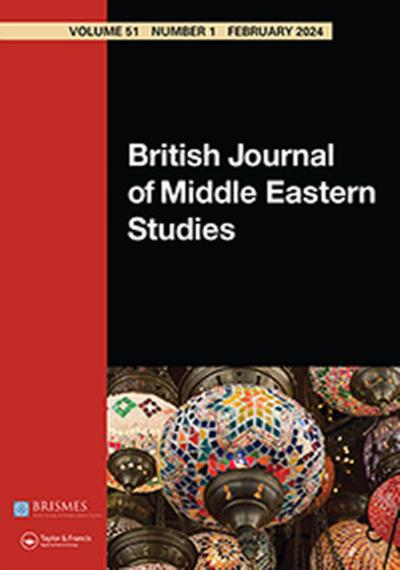New Afghan Men: Marriage, Masculinities and Sexual Politics in Afghanistan
Kabul – September 2016. The Chr. Michelsen Institute (CMI)-Norway and Peace Training and Research Organisation (PTRO) have been awarded a three-year research grant by The Research Council of Norway (RCN) to jointly implement, together with the Department of Anthropology, University of Sussex (UK) an exciting new project entitled New Afghan Men? Marriage, Masculinities and Sexual Politics in Contemporary Afghanistan. The research uses marriage and family relations as an analytical entry point to understand broader gender relations and ideologies, notions of love/intimacy and forms of personhood, and changing marriage practices in the context of post-2001 Afghanistan.
Since the 2001 overthrow of the Taliban government, Afghan gender relations and women’s rights have been a topic of great (geo-) political interest, as well as (to a lesser extent) academic inquiry. In these discussions, however, gender has come to be equated with women’s experiences, with little attention paid to men and masculinities. Often invoked are tropes from older pre-war literature, where the patriarch presiding over the extended family features as the chief male ideal.
Yet during the last 40 years of upheaval, a quiet but significant socio-economic transformation has taken place in many parts of Afghanistan, chipping away at both the material and the ideational underpinnings of older models of masculinity and associated family and marriage practices. War, displacement, rapid urbanization, monetization, access to new job opportunities and sources of accumulation, new media and communication technology (social media, Turkish TV series) have enabled new forms of aspirations and expectations of intimate and family life. At the same time, the war-and-aid economy and the accompanying conspicuous consumption have inflated the costs of marriage and wedding celebrations, making marriage almost prohibitively expensive for many men. Some spend years laboring in neighboring countries to raise the necessary funds. Others might find themselves eloping with a local girl, a time-honored practice that the arrival of mobile phones have made considerably easier to organize. For many women, but also an unknown number of men, such elopements end not with married life, but instead with lengthy prison sentences.
As marriage is a key marker of male adulthood, this project will approach the question of changing notions of masculinity in contemporary Afghanistan by examining the experiences of Afghan men who have entered into or exited marriage, through non-traditional or non-prestigious ways. We explore how men by eloping, entering or cultivating ‘modern’ love marriages, migrating in order to raise dowry (walwar), or divorcing their wives, in various ways either defy, transcend or exit out of hegemonic or traditional masculinities – or cling onto them at great personal costs. Furthermore, we ask whether these experiences point to novel ways of organizing family and intimacy, and to new and more inclusive ideals of Afghan manhood.
The main research questions are: What do the experiences of these men say about conventional and emergent masculinities and how they are sustained, challenged, and negotiated? What are the consequences of changing or alternative notions of masculinity for Afghan men and women, both in the extended household and in newly established nuclear families? Do emergent ideals of masculinity and marriage alter vulnerabilities for men and women, and do they support more egalitarian gender relations?
The project will be a collaboration between PTRO and CMI, with extensive experience of research in Afghanistan, including research on gender relations. Our research will be qualitative and ethnographic, cast around men’s marital life stories. In addition to addressing a significant gap in scholarly literature, the findings of the project will be of policy and public relevance to both international and Afghan audiences. Better and updated knowledge about what male ideals and notions of masculinity mean for both men and women in post-2001 Afghanistan is clearly important. At the same time, making visible the marital stories of non-traditional or marginalized men, and documenting the multiple ways in which marriage is currently entered into and experienced, is also important for Afghan public debate and policy.
The research will be led by a team of Afghan and international scholars comprised of anthropologists, political sociologists, development and gender studies specialists and peace and conflict resolution researchers. The team will conduct long-term ethnographic research in Kabul and Herat.
Dr. Torunn Wimpelmann will be the CMI co-director of the project. She is a political ethnographer whose research focus is on the intersections between gender, political and legal orders in contemporary Afghanistan. For a list of Dr. Wimpelmann’s publications visit https://www.cmi.no/staff/torunn-wimpelmann#publications.
Dr. Aziz Hakimi will be the PTRO co-director of the project. He is a political sociologist whose research interests include the political economy of late modern war, politics of armed groups and local militias. For a list of Dr. Hakimi’s publications visit https://www.cmi.no/staff/aziz-hakimi#publications.
The project co-directors will be assisted in the implementation of this research by a team of British professors at the University of Sussex and SOAS-University of London with long-term academic engagement in Afghanistan.
Deniz Kandiyoti is an emeritus professor in Development Studies at SOAS. She is an authority on gender in the Middle East and has published several seminal articles and books on the topic.. For a list of professor Kandiyoti’s publications visit https://www.soas.ac.uk/staff/staff31216.php
Magnus Marsden is a professor of Social Anthropology at the University of Sussex and the Director of the Sussex Asia Centre. He has published widely on masculinities, religion, morality and family life in Pakistan, Afghanistan and amongst the Afghan diaspora. He is the author of Living Islam: Muslim Religious Experience in Pakistan’s North-West Frontier (CUP 2006) and Trading Worlds: Afghan Merchants Across Modern Frontiers (Hurst/ OUP 2015) as well as several co-authored and edited books, and more than 20 peer– reviewed articles and book chapters.
For more information about the project, please contact aziz.hakimi@cmi.no and torunn.wimpelmann@cmi.no.



